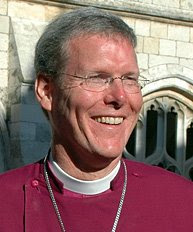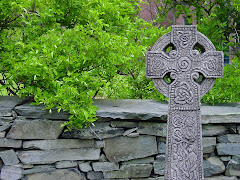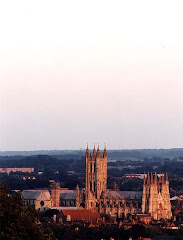What do you do when there’s no word for “resurrection”?
The topic for discussion in our Indaba Groups today was the interpretation of scripture. The specific question posed to us was “What would you consider are Anglican Ways [of] interpreting the Bible?”
The conversation uncovered many principles of interpretation held in common across cultural lines—a respect for biblical scholarship; the necessity of interpreting scripture in both its biblical and historical contexts; the fact that scripture is most properly read and understood in community and primarily in the context of worship; the challenge of reading the scripture in the context of the culture while at the same time allowing the gospel to stand over and against the culture; the importance of giving room to the Holy Spirit to inform our interpretation; and the role of the bishop as a bridge of interpretation between different contexts.
There were more contributions as well, and the presence in our group of Cardinal Walter Kasper from the Vatican (President of the Pontifical Council for Promoting Christian Unity) confirmed that these principles are not uniquely Anglican but are indeed shared across denominational lines.
Given the controversial issues that are before us as a Communion—issues that have caused some to claim that others are rejecting the very authority of scripture itself—the subject of interpretation becomes particularly important.
To the task of interpreting scripture we inevitably bring our lives, our different cultures, and our personal histories. It is a fact that our fellowship as a global communion “is both greatly enriched, and at times challenged and confused, by the variety of ways of encountering Scripture.” These are the words of the Inter-Anglican Theological and Doctrinal Commission in a report addressing the centrality of the bible in the Anglican tradition. The report goes on to say, “The rich variety of material within the canon [of scripture] resists all human attempts to reduce it to a flat or uniform agenda. At the same time, the biblical writings are consistent witnesses to the trustworthiness of the triune God and, for all their differences of style, content, and opinion, they are clearly part of one conversation that intends to be open to hear the Word of that one God.”
Not surprisingly, in today’s Indaba Group, the foundational issue of language showed itself once again to be one of the greatest challenges.
A bishop from the Democratic Republic of Congo informed us that in his language there is no word for “resurrection.” A bishop from Burma said that there were no words for either “shepherd” or “sheep.” Something as basic as that—the lack of a concept and the lack of a single word—he observed, makes it difficult to teach people that Jesus is the good shepherd let alone one who has risen from the dead.
Which brings an element of creativity into the task of biblical translation and interpretation.
A bishop from Canada told the story of translating a passage in Luke 10 for the Inuit people among whom he was working—that story in which Jesus appoints seventy to go before him to proclaim the gospel. When it came to the part that reads “the seventy returned with joy” (verse 17), the translator informed him that there was no word in the vocabulary that would do. After searching a moment for a concept that would remain faithful to the text and, at the same time, would work for a people living in an environment of cold and ice, dogs and dogsleds, the translator finally explained to the people quite simply that the seventy returned “wagging their tails.”
Think about it.
Could it be that the interplay between scripture and culture and the inevitable tension that it brings to the task of faithful interpretation is, at the same time, the very thing that brings the Living Word into life?
Wednesday, July 30, 2008
Subscribe to:
Post Comments (Atom)



1 comment:
Thank you for this wonderful blog. It helps me have a better insight into what the Lambeth conference is all about. I know blogging takes a lot of time. This one is much appreciated.
-Montrose,CO
Post a Comment